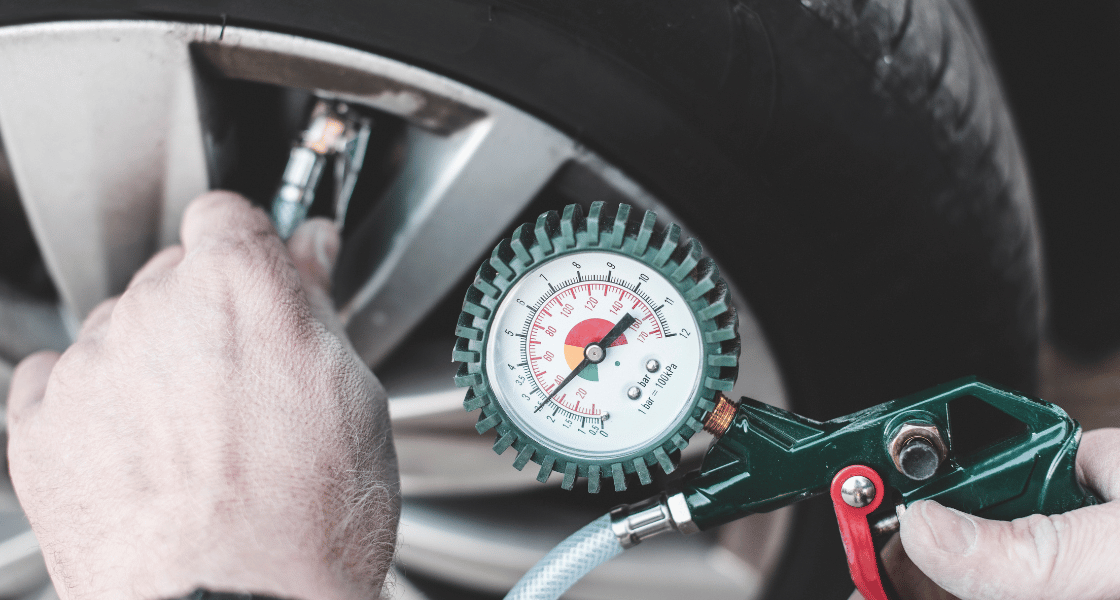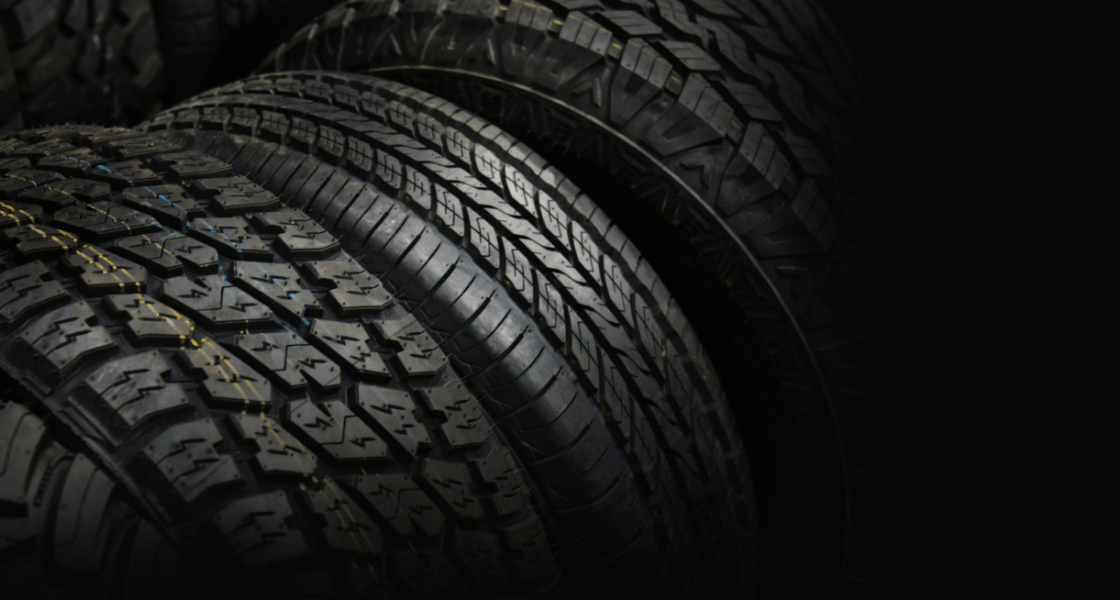Did you know that maintaining proper tire pressure can save you up to 11 cents per gallon on fuel costs? And that’s not all – it can also extend the life of your tires, improve handling and safety, and reduce carbon emissions.
You may also have heard of tires filled with nitrogen… And while it may sound like a niche trend, pure nitrogen inflation for tire pressure is gaining popularity due to its numerous benefits for optimal tire performance. Let’s explore the importance of nitrogen pressure for your tires and how it can improve your driving experience. So buckle up and get ready to learn!
Table of Contents
ToggleWhat is Tire Pressure?
Most of us are familiar with the term “tire pressure”. But what does it mean? It’s the amount of air or nitrogen gas inside your car tires, measured in pounds per square inch (PSI).
Maintaining good tire pressure is crucial for the longevity and performance of your tires, as well as your car’s fuel efficiency and safety. The recommended inflation pressure can vary depending on the type of tire and vehicle you have but typically falls between 28-36 PSI.
Tire inflation pressure lower than 25% of the recommended PSI is too low. It can result in reduced fuel economy, shorter tire life, and increased rolling resistance. Overinflated nitrogen or air tires can cause a harsher ride, uneven tread wear, and potential blowouts.
It’s important to regularly check and maintain correct air pressure or nitrogen pressure to keep your tires in top shape.
Why is Tire Pressure Important?
Of all the factors that affect the performance and longevity of your car tires, tire pressure is one of the most crucial. Why is tire pressure important, you may ask? Well, for starters, it directly impacts your car’s fuel efficiency. Proper tire pressure can improve your car’s gas mileage by up to 3-4%, saving you money in the long run.
Maintaining the correct tire pressure can also improve your car’s handling and safety on the road. When your tires are properly inflated, they have the optimal contact patch with the road, providing better traction and stability. Underinflated tires, on the other hand, can cause uneven tread wear, leading to reduced grip and potentially dangerous driving conditions.
In addition, correct tire pressure is important for the longevity of your tires. Underinflated tires generate more heat, which can lead to tire aging. Overinflated tires, on the other hand, can cause the center of the tire-filled tread to wear out faster, resulting in the need for replacement tires sooner than expected.
How Does Tire Pressure Affect Performance?
Believe it or not, tire pressure can have a significant impact on the overall performance of your vehicle. The correct tire pressure ensures that your tires are in optimal contact with the road surface, providing better handling, steering, and braking.
Underinflated tires can cause increased rolling resistance, making it more difficult for your car to move forward, and resulting in a decrease in fuel economy and longer tire life. They tend to wear out more quickly, leading to the need for replacement tires sooner than expected.
Overinflated tires, on the other hand, have less contact with the road surface, leading to decreased traction and stability, particularly in wet or slippery conditions. They also tend to wear out faster in the center of the tread, which can be dangerous on the road.

What are the Benefits of Nitrogen Inflation for Optimal Tire Performance?
Nitrogen inflation is an increasingly popular alternative to compressed air for inflating car tires. But what exactly are the benefits of nitrogen inflation for optimal tire performance?
Firstly, nitrogen molecules are larger than oxygen molecules found in regular air, meaning they are less likely to escape through the rubber pores of your tire. This leads to less air loss over time, resulting in tires that maintain proper tire pressure for longer periods of time, reducing the need for frequent tire inflation.
Nitrogen reduces the amount of water vapor in your tire, which can lead to corrosion and rust inside the tire. Nitrogen inflation also improves fuel efficiency by reducing rolling resistance and the friction between the tires and the road surface and improves tire life by reducing tire aging due to heat generated from friction.
By supporting the maintenance of proper tire pressure and improving fuel efficiency and tire life, nitrogen inflation is a great option for drivers who want to maximize their driving experience.
The Consequences of Incorrect Tire Pressure
The consequences of incorrect tire pressure can be significant and costly. When your tires are underinflated, they tend to wear out more quickly, reducing their lifespan and costing you money for frequent replacements. Underinflated tires also generate more heat from dry air, which can lead to tire aging and potential blowouts, posing a serious safety risk on the road.
Overinflated tires can cause uneven tread wear, resulting in reduced grip and handling, which can also be dangerous on the road. Overinflated tires also increase the risk of a blowout, as they are more likely to burst under excessive pressure.
The consequences of incorrect tire pressure are many and varied, ranging from decreased tire life and fuel efficiency to safety risks such as potential blowouts. That’s why it’s essential to regularly check flat tires, and maintain proper tire pressure to keep your car and its passengers safe on the road and to save money on fuel and frequent tire replacements.
How to Check and Adjust Nitrogen Pressure
Checking and adjusting nitrogen pressure is similar to checking and adjusting air pressure, but it requires different tools. You’ll need a tire pressure gauge that is specifically designed for nitrogen, as regular tire pressure gauges won’t accurately measure nitrogen pressure.
To check the nitrogen pressure, remove the valve cap, press the inflation pressure gauge onto the valve stem, and read the pressure on the gauge. If the pressure is too low or too high, you can adjust it by adding or releasing nitrogen through the valve stem.
It’s important to note that overinflated tires can be just as dangerous as underinflated tires, so be sure to adjust the nitrogen pressure to the manufacturer’s recommended levels.
Nitrogen Pressure Maintenance Tips
Maintaining the proper nitrogen pressure in your tires is crucial for optimal performance, but it’s also important to practice proper tire maintenance. Regularly inspect your tires for any signs of wear or damage, such as bulges or cracks, and replace them if necessary.
Rotate your tires regularly to ensure even wear and extend their lifespan. Proper alignment and balancing can also help to prevent uneven wear and tear on your tires.
Avoid overloading your vehicle or carrying heavy loads, as this can put additional stress on your tires and lead to increased wear and tear. By practicing good tire maintenance habits and regularly inflating tires, and checking and adjusting the nitrogen pressure in your tires, you can ensure optimal performance and longevity from your tires.
Keep Your Tires Performing at Their Best
At Fuel and Tire Saver, we offer a nitrogen tire inflation service as a cost-effective solution for optimizing tire performance!
Our team is committed to the science behind nitrogen tire inflation and can work with you to develop a customized tire maintenance plan that meets the unique needs of your fleet.
Contact Fuel and Tire Saver and check out our resources page to learn more about our nitrogen-filled tires and how we can help keep your fleet rolling smoothly!


